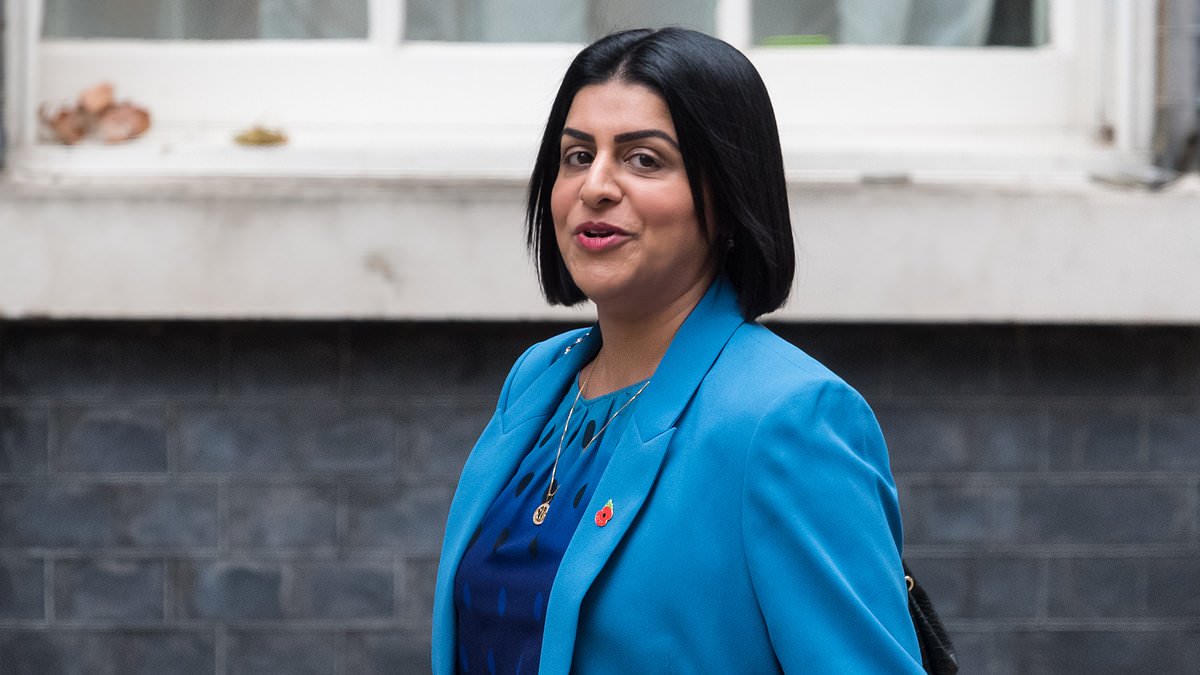MPs are bracing for a bitter struggle over the assisted dying law this week with warnings it could be ‘talked out’.
Tensions are rising with the Commons set to debate the issue on Friday and potentially vote for the first time in nearly a decade.
But the Private Members’ Bill proposed by Labour MP Kim Leadbeater has sparked deep splits in the Cabinet, and across the political spectrum.
Justice Secretary Shabana Mahmood has branded the policy a ‘slippery slope towards death on demand’ in a letter to constituents. Health Secretary Wes Streeting has also been critical, but Keir Starmer has hinted he will back the plan – which gained momentum after a campaign by terminally ill TV star Esther Rantzen.
Meanwhile, Speaker Lindsay Hoyle is expected to stick to convention by not imposing any time limit on speeches. That could leave the measures vulnerable to a filibustering effort by opponents.
As politicians wrestle with their positions, polls have suggested that the public supports the principle of assisted dying – although there are doubts about how it would be implemented in practice.
Research by More in Common has found nearly two thirds favour the idea, with just 13 per cent opposed and 22 per cent unsure.
The legislation put forward by Ms Leadbeater would allow terminally ill adults expected to die within six months to get help to end their life.
Two doctors and a High Court judge would have to verify that they were eligible and had made their decision voluntarily.
The More in Common poll, based on interviews with 17,000 Brits, found that those who had lost a parent in the past five years were 18 points more likely to be strongly supportive of assisted dying.
Only seven Commons constituencies had majorities against the move in principle.
They included Ms Mahmoood’s seat of Birmingham Ladywood.
In a letter to constituents, seen by The Observer, the Justice Secretary said the Bill represented a ‘slippery slope towards death on demand’.
She said: ‘Sadly, recent scandals – such as Hillsborough, infected blood and the Post Office Horizon – have reminded us that the state and those acting on its behalf are not always benign…
‘It should protect and preserve life, not take it away. The state should never offer death as a service.’
Ms Mahmood said she was concerned about the disabled, sick and elderly being pressured into ending their lives.
The poll found the majority of Brits regard strict safeguards as ‘essential’ to an assisted dying law.
However, 71 per cent said it was possible to create policy with the right protections, against 29 per cent who thought it was not.
The bill was seen as happening at about the right pace by 51 per cent, while a further 13 per cent said it was too slow. Nearly a fifth said it was happening too quickly.
UK director of More in Common Luke Tryl said: ‘As MPs are weighing up how they will vote on the Assisted Dying Bill, the message from the public is clear: they support the principle of assisted dying but want to make sure that there are tight restrictions on eligibility and that there are proper safeguards in place to protect the vulnerable.
‘Neither a rushed ill that fails to address real concerns about protecting the vulnerable, nor a ‘no’ vote on Friday which takes the issue off the table for another decade seem likely to satisfy the public, who want to see assisted dying legalised, but want to see it done properly.’
The second reading debate on Friday will last up to five hours, with complaints that not enough time has been allocated to consider such a big issue. Ministers have said there will be more time for scrutiny should it clear the first Parliamentary hurdle.
As a matter of conscience it is due to be a free vote of MPs.
